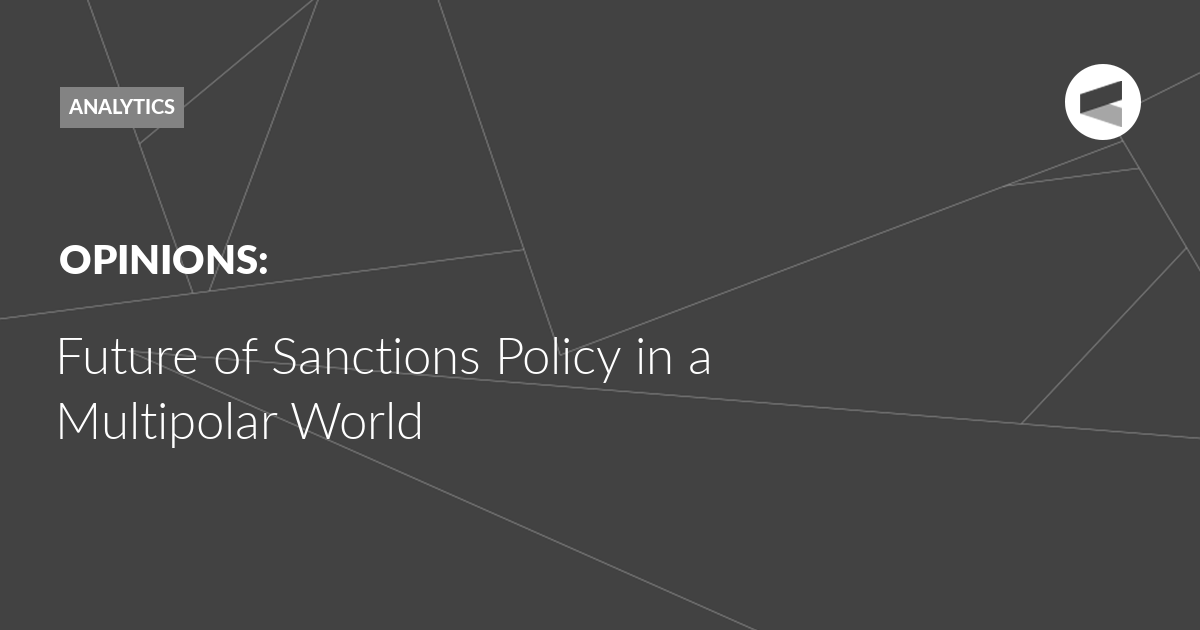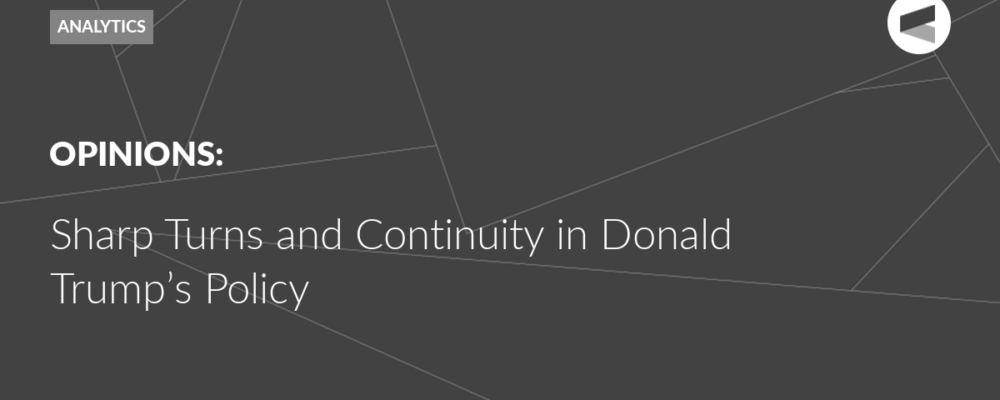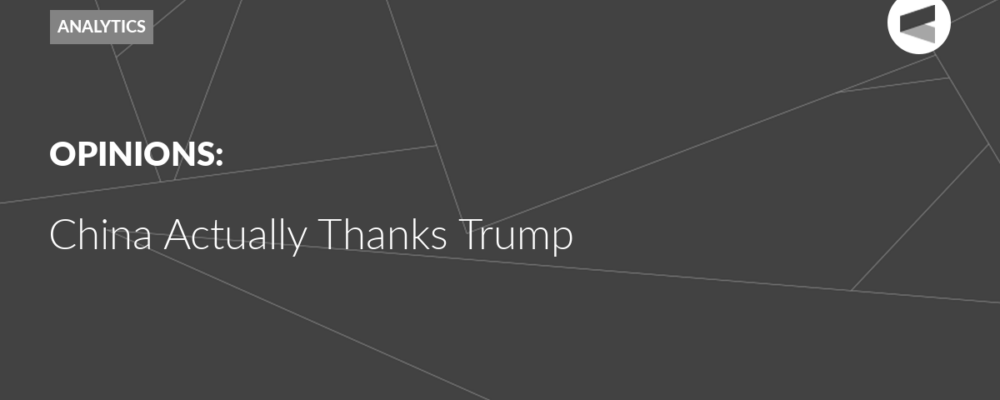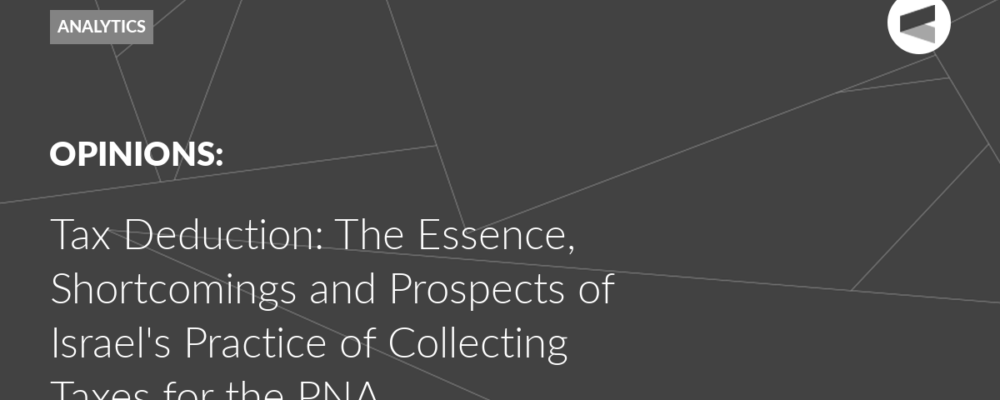Based on the foregoing, and taking into account countries’ experiences between 1992, when the unipolar world was established, and 2024 – namely, that the initiators of draft resolutions in the UN Security Council on restrictive measures were Western countries, we can assume that such attempts will continue in the future; we should not expect changes in Western sanctions policy, Milana Živanović writes.
On May 30, 1992, amid the war in Bosnia and Herzegovina, the United Nations Security Council imposed comprehensive sanction against one state, the Federal Republic of Yugoslavia, for the first time since the Cold War ended and the unipolar world was established.
Representatives from 13 countries voted for the draft resolution prepared by the United States of America, the European countries and Morocco, while China and Zimbabwe abstained. The vote record reflected early 1990s realities, particularly US hegemony. However, much has changed in the last thirty-two years. The most significant developments have occurred within the international system. Many experts, analysts, and Russian officials, notably Russian leader Vladimir Putin, believe that the era of the unipolar world has come to an end.
Recent events have confirmed this fact. On May 23, 2024, 84 countries spoke in favour of the draft resolution on the July 1995 events in Srebrenica, Bosnia and Herzegovina, while 19 states, including Russia and China voted against it, and 68 countries abstained from voting in the UN General Assembly. The final declaration of the Ukraine summit, held in Switzerland from June 15 to 16, 2024, was supported by 80 countries, but representatives of more than 10 states refused to sign it.
Even Americans recognize that the United States is losing its global power. In a 2023 interview with Bloomberg, former US Treasury Secretary Lawrence Summers confessed that the US is losing global influence as other powers, particularly Russia and China, align and gain favour “among nations not yet aligned”. With the changing geopolitical realities, it is apparent that the world’s balance is altering, as evidenced, among other things, by the UN Security Council, the only body with the right to impose legal sanctions on any state.
The Security Council’s
restrictive coercive measures are meant to maintain or restore international peace and security,
and so serve as a mechanism for collective security. The purpose is to “ensure compliance with the rule of non-use of force”
and to help reduce the repercussions of the conflict, preventing it from escalating and resuming violence.
However, given the current standstill in this institution as a result of the geopolitical rift, one must wonder about the future of that aspect of international policy.
The five permanent members of the UN Security Council take quite different positions on sanctions: three (the United States, the United Kingdom and France) pursue an active sanctions policy, while the other two (Russia and China) pursue a passive one. China and Russia have not drafted resolutions on sanctions against any state; instead, the majority of Western nations, particularly the United States and Great Britain, have submitted similar texts to the Security Council. Moscow and Beijing, taking into consideration a variety of variables, most notably the expediency and targeting of the most restrictive measures, chose to support a separate project, abstain from voting, or veto. At the same time, in recent years the two countries’ voting rates have been similar: their permanent representatives frequently voted the same way,
sometimes even jointly vetoing (in 2017, a joint veto on a draft resolution imposing sanctions on Syria tabled primarily by the USA, the UK and France; in 2022, on a draft resolution prepared by the United States to impose additional sanctions against the Democratic People’s Republic of Korea). Experts interpret this trend as a “confrontation with the unipolar world and the Western model of dominance in the UN.”
Without a doubt, the two countries also oppose the misuse of sanctions and politicisation. In the Security Council Chamber, Russian and Chinese delegates criticised US activity within this institution. Thus, “United Nations mechanisms in general, and subsidiary bodies of the Security Council in particular, are being utilized to abuse the sanctions toolbox”, stated Russia’s permanent representative.
According to calculations made by international researchers, out of 174 cases in which economic sanctions were applied between 1914 and 2000, 109 were imposed by the US, 20 by the UN, 16 by Great Britain, 14 by the EU, and 13 by the USSR and Russia (the latter in reference to
nations in the post-Soviet region). In the 21st century, Russia implemented special economic measures in accordance with the federal law “On Special Economic Measures” (now “On Special Economic Measures and Coercive Measures”), which was passed in December 2006, and grants the Russian president the authority to implement such measures in international emergency situations. Furthermore, from 2006 to 2013, Georgian wines and mineral water were banned from being imported into the Russian Federation due to noncompliance with quality regulations. After 2014, Moscow imposed measures against Ukraine and chose to retaliate against unilateral sanctions imposed by the West. China also imposed measures, although their number, like Russia’s restrictive measures, is not comparable to the number of
similar acts taken by Western countries. As noted by Permanent Representative of Russia Vasily Nebenzya in 2022, unilateral sanctions made it impossible to implement Security Council resolutions and undermined “our ability to respond collectively and multilaterally”. Furthermore, as stated in the Russian Foreign Ministry’s International Legal Committee’s Conclusion, unilateral sanctions imposed by the US and the EU have political and economic ramifications that are comparable to those of the UN Security Council. If these sanctions were imposed in the absence of sanctions from this body, or if their scope exceeds that of UN restrictive measures against the same state, they may have a negative impact on the Security Council’s efforts to uphold peace and security.
Based on the foregoing, and taking into account countries’ experiences between 1992, when the unipolar world was established, and 2024 – namely, that the initiators of draft resolutions in the UN Security Council on restrictive measures were Western countries, we can assume that such attempts will continue in the future; we should not expect changes in Western sanctions policy. As stressed by Vasily Nebenzya in May 2022 at a UN Security Council meeting on sanctions against the DPRK, “the primacy of finding political and diplomatic solutions to conflicts all over the world is paralyzed. Preventive diplomacy, whose praises many Member States, including the author of the draft resolution, love to sing, is cast aside as soon as it comes to countries that are not considered part of the so-called civilized world. It seems that our American and other Western colleagues are suffering the equivalent of writer’s block, given that they have no response to crisis situations other than the imposition of sanctions.”
The responses of Russia and China to such acts will be determined by a variety of circumstances. When voting on draft resolutions in the UN Security Council, these two permanent members will continue to consider: the situation in a given state, specific proposed measures, the goals of introducing restrictive measures, consequences for a given state, the motives of the initiators, political and geopolitical components, taking their own proposals into account when proposing resolutions, and national interests. But we can already say with certainty that Russia and China will continue to reject Western countries’ intentions to exert political and unwarranted economic pressure on certain countries of the world, as they did in 2017 with Syria and in 2022 with the DPRK. Furthermore, attempts to misuse the sanctions tools will be blocked by the two nations’ permanent representatives, who vetoed a US draft resolution in 2020 that would have extended the travel ban and arms embargo on citizens of Iran and expired five years after the Joint Comprehensive Agreement action plan was adopted. Of course, for obvious reasons stated in the UN Charter, such attempts to exert pressure on Russia or China will fail.
On the other hand, we can assume that attempts to revise or cancel existing UN Security Council sanctions against a state that is resisting the West, if the benchmarks are met, and especially if it threatens serious consequences for this state, will be met with a reaction from the West, which has halted work on a draft humanitarian resolution on the DPRK prepared by the Russian and Chinese delegations, aimed at easing sanctions against that state.
It is also improbable that these two permanent members of the UN Security Council will modify its stance on sanctions – resolutions proposing sanctions against any state should not be expected from the two countries. Russia and China will continue to advocate for dispute settlement thorough political and diplomatic channels, but will employ different kinds of tactics in response to direct military activities made against its states and citizens.
Changes in terms of imposing unilateral sanctions from the collective West should also be avoided. In June 2024, another set of European, as well as American sanctions against Russia was imposed; the latter affected both individuals and legal entities in the Russian Federation. Moscow retaliated against these actions and will continue to do so in the future to preserve its national interests.
On the other hand, the global majority continues to oppose anti-Russian measures, and we should expect this tendency to grow.
Given the increased number of applications to join the BRICS, as well as the willingness of the world’s majority to strengthen cooperation with Russia, it is unlikely that its attitude toward Western sanctions will change and that those countries will support it in the future. Furthermore, in terms of asset confiscation, Moscow has received direct messages from a number of G7 countries that such actions will not be taken, notably due to concerns about retaliation from the Russian Federation.
To resist restrictive measures, a team of authors from the Council on Foreign and Defence Policy and the Higher School of Economics offered ideas in their study “Russia’s Policy Towards the Global Majority”. As part of Russia’s policy toward the global majority, the report’s authors advised spreading the notion, in partnership with other interested countries, that freezing states’ gold and foreign exchange reserves is unacceptable. They also proposed the formation of an “anti-sanctions club” of governments “to jointly protect interests from encroachments by the West.”
This notion was initially raised by the Iranian Ambassador to Russia Kazem Jalali, and later reaffirmed by Iran’s Minister of Justice, Amin Hossein Rahimi, during his speech at the St. Petersburg International Legal Forum in May 2023. Dmitry Medvedev, the Deputy Chairman of the Russian Federation’s Security Council, backed their suggestion. This was followed, in June 2024, by an official Russian-Belarusian statement, in which the heads of the Ministries of Foreign Affairs of the two states noted that they “stand for joint promotion, including at the UN, of initiatives aimed at countering unilateral coercive measures as method of political and economic blackmail and enslavement of sovereign states, protection and strengthening of the principles of sovereignty, non-interference in internal affairs and mutual respect”.
Sanctions, as an important tool in international politics, are unlikely to disappear. This also applies to unilateral sanctions: the West will continue to impose those restrictive measures on states that oppose it and whose policies do not correspond to Western interests. However, support for such moves will continue to erode. On the other hand, it appears that the introduction of sanctions with a clearly political connotation and component in the UN Security Council has come to an end (albeit, as Ivan Timofeev accurately stated, “the essential feature of sanctions is its political nature”).
Proposed resolutions on restrictive measures with political purposes will not be voted on in this institution. Western activities to pursue them will elicit a response from Russia and China. At this point, there is unlikely to be a way out of the UN Security Council impasse, though in 2023, Russia’s permanent representative to the UN, Vasily Nebenzya, proposed putting an end to Western countries’ attempts to maintain their geopolitical dominance in this institution. However, there is optimism for some form of unanimity in the UN Security Council on sanctions concerns, taking into consideration the results of the votes on resolutions on Afghanistan, as well as the Islamic State of Iraq and the Levant, and Al-Qaeda, all of which are banned in Russia. In December 2021, members of the Security Council adopted a draft resolution prepared by the United States on providing humanitarian assistance to Afghanistan and conducting other activities to meet the basic needs of the Afghan population in response to changes in government bodies, which included members on sanctions lists, the Taliban organization (banned in Russia), and the region’s growing economic and humanitarian crisis.
Furthermore, in June 2024, at the request of the United States, the mandate of the Islamic State of Iraq and the Levant and Al-Qaeda Sanctions Monitoring Group, as well as the Ombudsman, was extended for three years – the mission of the sanctions regime was extended. Although the Russian Federation abstained from voting, since its ideas were not taken into account, permanent delegate Vasily Nebenzya stated that Moscow strongly supports the current sanctions regime, which was implemented in 1999 and is considered one of the most successful.
The Valdai Discussion Club was established in 2004. It is named after Lake Valdai, which is located close to Veliky Novgorod, where the Club’s first meeting took place.
Please visit the firm link to site






